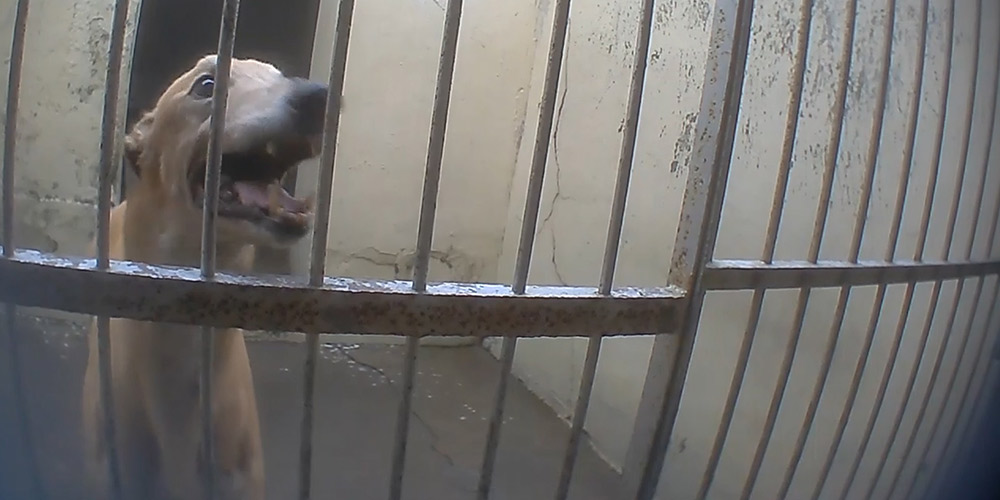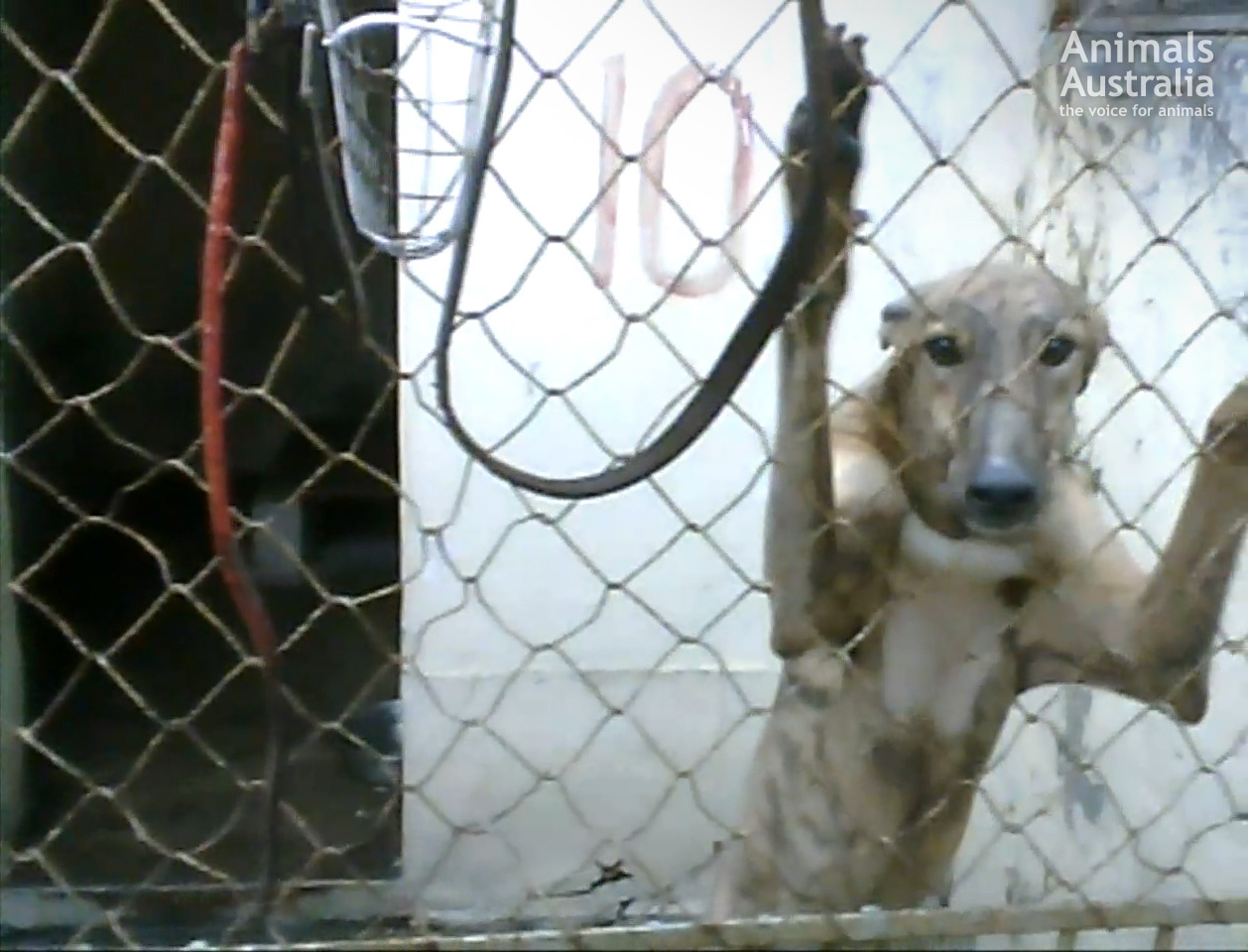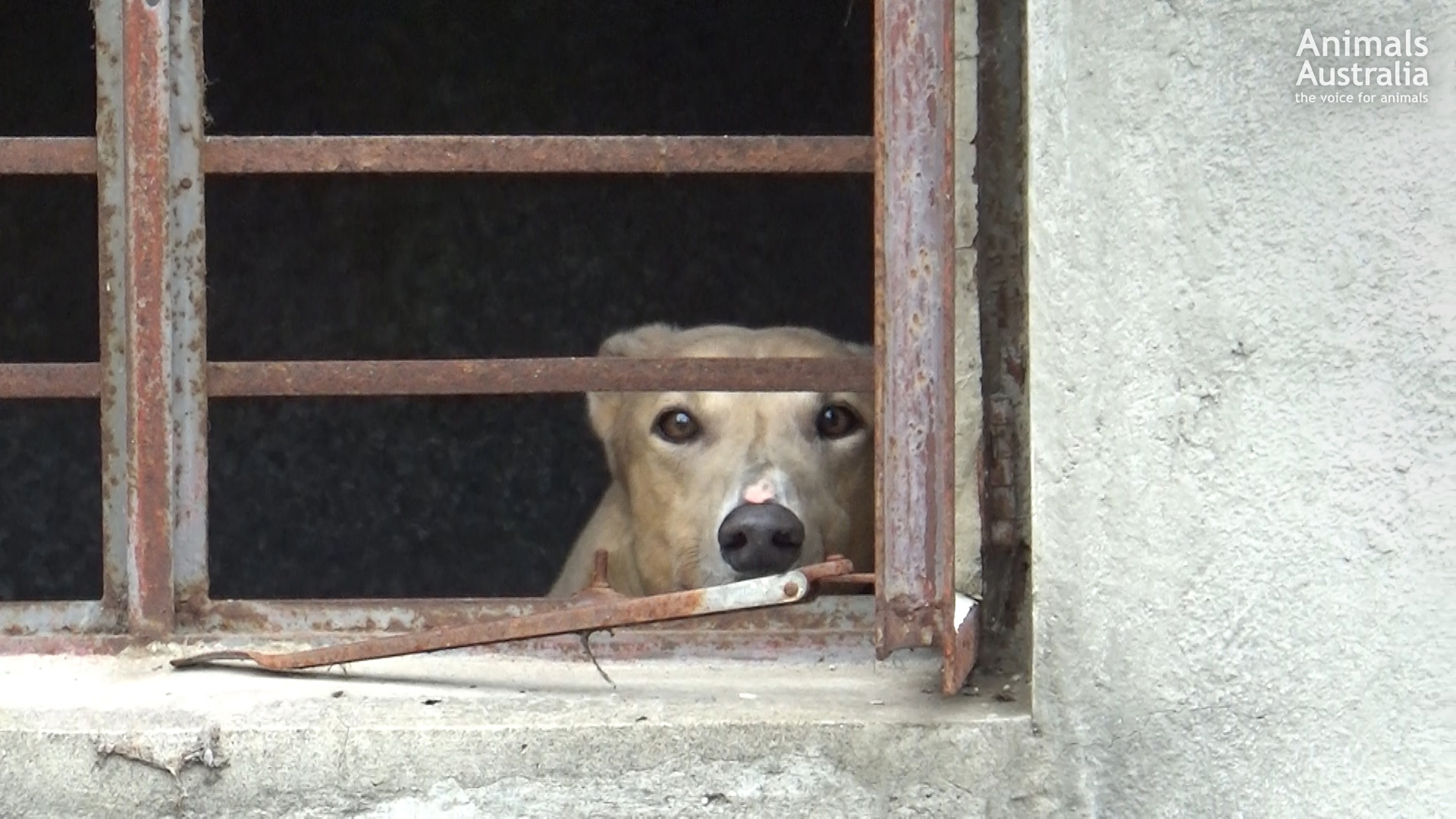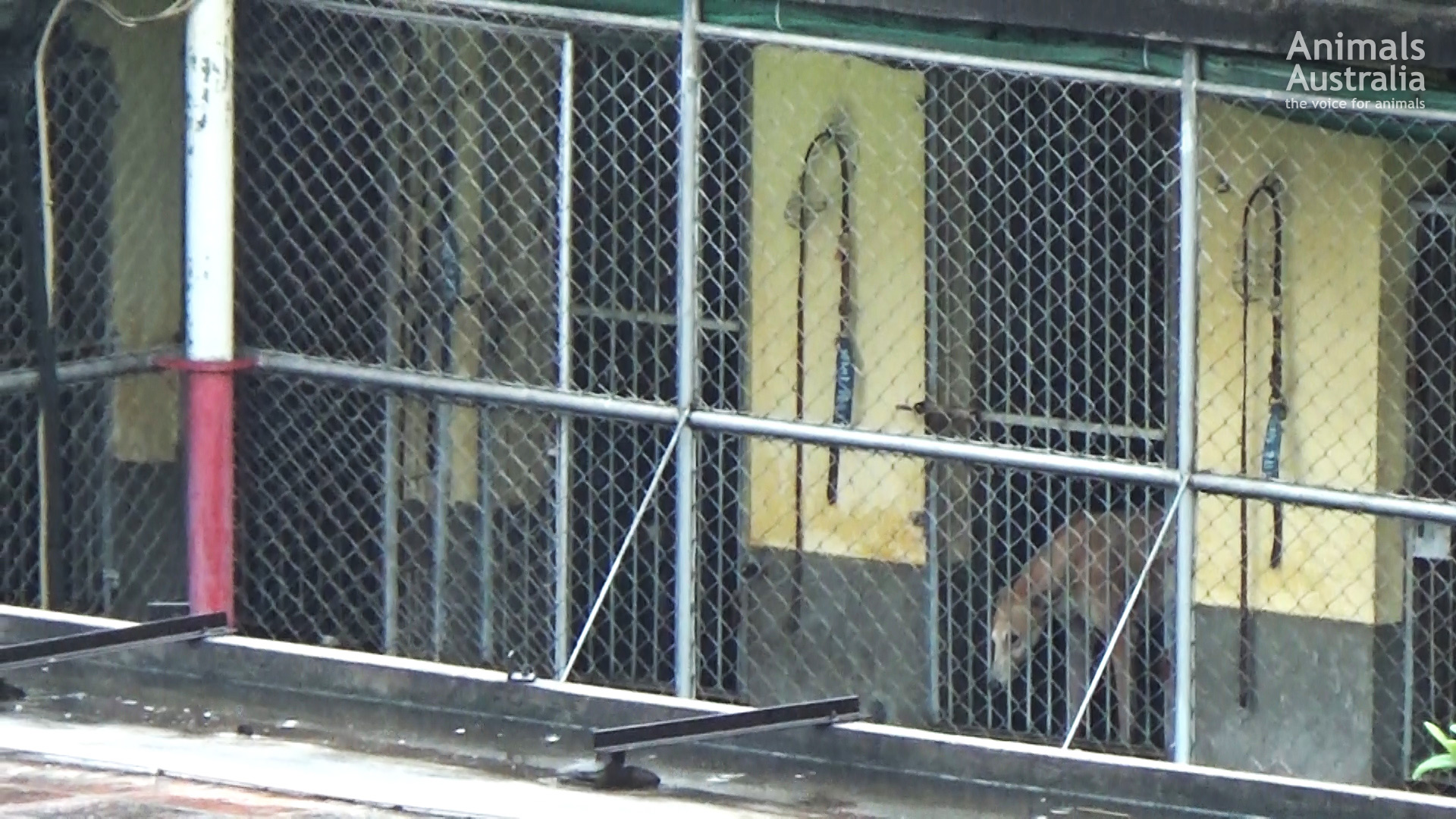Submission points:
1. There is no way to ensure the welfare standards of greyhounds who are exported. Legal loopholes mean that Australian greyhounds are exported to countries with animal welfare standards well below those of Australia.
While the industry body, Greyhounds Australasia, has a ‘passport’ system for greyhounds who are exported, this passport system is largely meaningless and doesn’t ensure the welfare of exported animals because:
- Greyhound passports not a legal requirement: Under Greyhounds Australasia (GA) Rule 124, any registered participant exporting a greyhound must obtain a greyhound passport from GA. However, compliance with Rule 124 is not a requirement under Commonwealth live animal export laws and so greyhounds are exported without any passport.
- The passport Rule is frequently broken: Animals Australia has documented evidence of owners and trainers breaching Rule 124 exporting greyhounds without passports to destinations where they have faced animal cruelty. For example, investigations in 2015 implicated no fewer than 70 greyhound owners and trainers exporting no fewer than 133 greyhounds to Macau in China, without passports.
- The greyhound racing industry issues greyhound passports to countries where the animals face cruelty: Passports can be issued to countries where racing is ‘unregulated’ and to where export would usually be prohibited, if they are satisfied that the greyhound would be kept as a ‘pet’ or companion. It has been acknowledged by racing integrity bodies that dogs ‘go missing’ once reaching the destination.
2. Greyhound export is associated not only with cruelty, but also unlawful activity.
This includes:
- Exploitation of legal loopholes and the industry ‘passport’ system to export greyhounds to countries where they face cruelty such as being kept in concrete cells, forced to race in terrible conditions, suffering painful injuries, being injected with insecticides and dying in agony, and facing certain death within 3 years of exportation.
- Using greyhound export as a way to “dump dogs that don’t win” by selling and sending unwanted dogs offshore.
- Links have been found between organised crime and greyhound racing in Australia. Allowing the export of greyhounds overseas facilitates further exploitation by organised criminal networks.
- Owners and trainers identified through public record who had been fined or suspended from racing are still involved in the export and racing of dogs.
3. The industry cannot track dogs sent overseas.
Even if dogs are listed as being exported as ‘pets’ there is nothing stopping these dogs from being used for racing or breeding, or from being on-sold to other countries where they may be subjected to extreme cruelty. Once dogs leave Australia there is no way to track or to control what happens to them. In official complaints lodged with the Department in 2015, Animals Australia highlighted that dogs who were exported overseas to race (or perform in other ways) were erroneously listed on industry systems as ‘retired’.
4. Dogs suffer when they travel by air – Air transport is stressful for dogs[1].
Rather than needlessly transporting dogs long distances, the Australian greyhound racing industry should instead be investing in strategies that significantly reduce overbreeding of dogs, and take accountability for the lifelong care of the dogs and puppies it uses to generate billions in gambling revenue.
[1] Bergeron, R., Scott, S. L., Émond, J.-P., Mercier, F., Cook, N. J., & Schaefer, A. L. (2002). Physiology and behavior of dogs during air transport. Canadian Journal of Veterinary Research, 66(3), 211–216.











